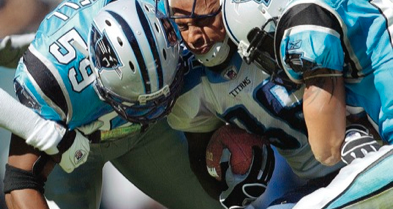A 16-year-old was rammed in the shoulder causing his head to pull back and hit the ground during football practice. While he was on the ground, unconscious, eight other guys piled on top of him. Ever since then, he has had nerve damage, weakness, and numbness.
He was not able to remember anything for three days since he sustained a concussion. His father, who is big into football, wanted him to start weight training a week later, but he couldn’t even lift his gym bag.
What exactly is a concussion? A concussion is an injury to the brain, which can make one unconscious or alter ones senses. The symptoms are easy to recognize but are often missed. They include: not remembering the injury, acting confused, slurring words, repeating the same question, feeling light-headed, seeing “stars”, hearing ringing in the ears, seeing blurry, having balance problems, becoming irritable, having mood swings, experiencing headaches and throwing up.
While these symptoms are short term, there are long-term effects of concussions. Recent studies have shown that professional football players suffer from Alzheimer’s disease and dementia at an earlier age and at a much higher rate than those who do not play football.
A former NFL linebacker, Ted Johnson, developed dementia, but continued to play football. “I couldn’t remember the plays and had trouble seeing” Johnson said in a 60 Minutes interview.
Although high school football players don’t play at a professional level, they may be equally at risk of Alzheimer’s disease and dementia. Unfortunately, some research has shown that high school players may be at high risks because their brains are still developing, while constantly being hit against the skull when playing the game.
One of the many problems with football is that the coaches and players sometimes do not recognize that the player has just had a concussion. Doctors say that after a concussion, the player should restrain from playing for at least a week to recover from the injury.
If someone does experience a concussion, they should go to the emergency room or be seen by a doctor. Usually, the doctor will ask a series of questions to makes sure the brain is properly functioning. If necessary, the doctor will order brain scans to make sure there is no bruising or bleeding in the brain. If the scalp is swollen, the doctor may advise the patient to put a cold compress and may recommend taking pain medications. After seeing a doctor, the only other way to recover from a concussion is to get plenty of rest. Resting will let the brain heal from the injury and the patient is usually better in a few hours or days.
Thanks to the much publicized research studies, coaches are now distributing pamphlets about head injuries and concussions, and are encouraging players to get frequent medical check-ups. The NFL is modifying rules and regulations to make football safer. Head – to – head block maneuvers are now illegal players will be fined if they violate these rules.
In Texas, Oregon, and Washington, laws for high school football have been passed that demand the removal for one day of a high school player if they have suffered an injury. Unfortunately, Tennessee has no such laws.
Even with these laws, the game of football will be aggressive and times dangerous. The hope is that these laws will limit the damage to the brain from concussions.
The story of the 16-year-old boy has a happy ending. He is now in therapy and should make a full recovery.


